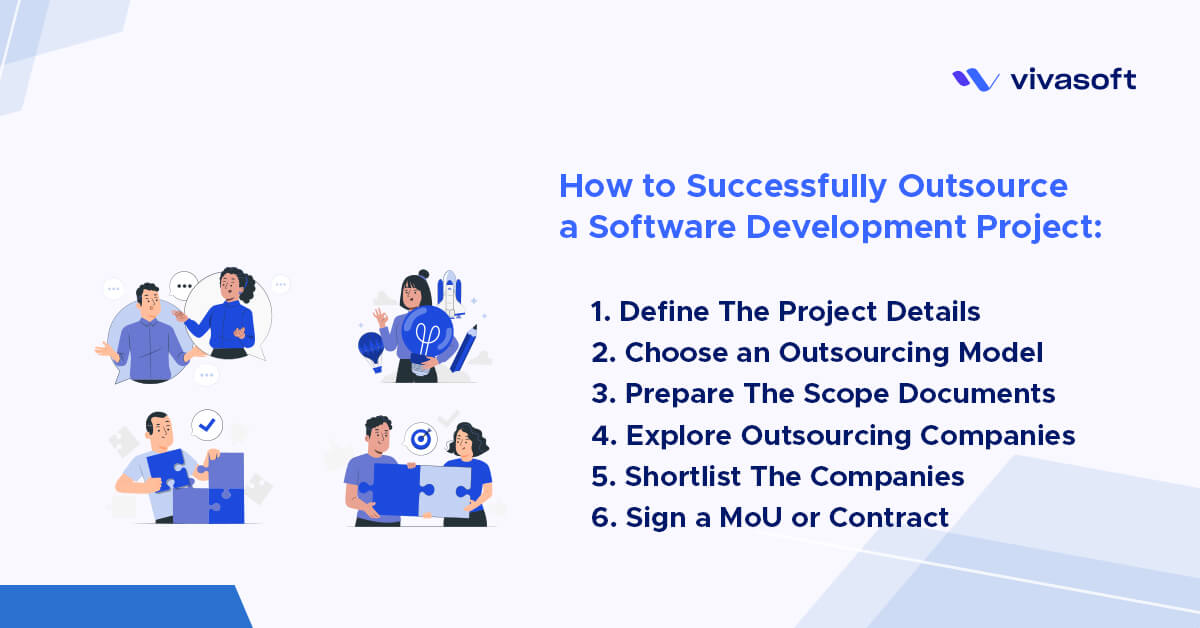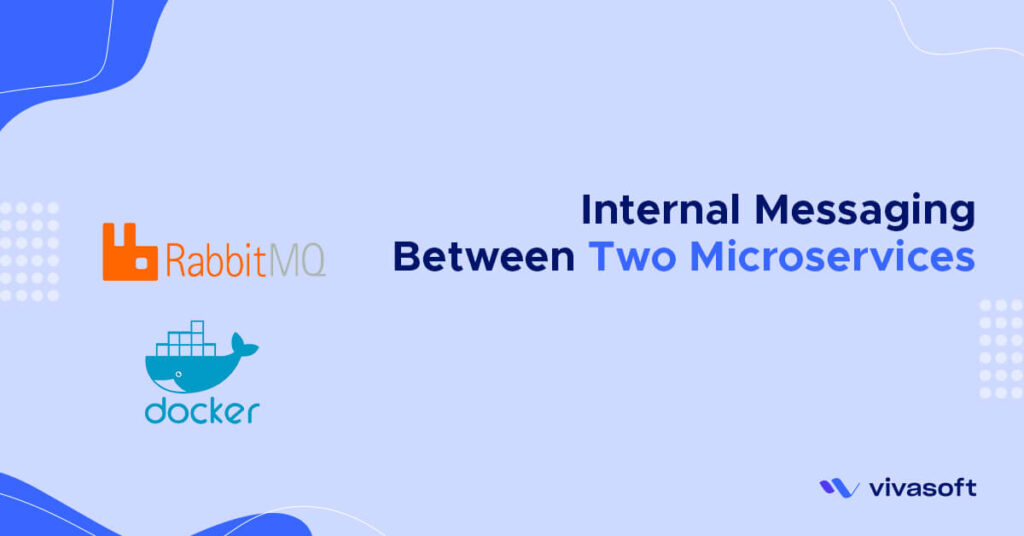Outsourcing a software project provides you with access to a varied pool of technical expertise, enabling you to move your project forward more quickly and affordably. A recent report by Deloitte says that spending on software development outsourcing is expected to reach $519 billion by 2023, which is a 22% increase from 2019. According to another study, companies will spend a total of $133,3 billion on engineering firms that are outsourced by 2025. A software development outsourcing project is a great investment, but all the research in the world won’t pay off if you make the wrong choice in which one to work with.
As cloud computing has tremendously simplified the process of remote collaboration, it has become simpler and more common to hire software development outsourcing services from abroad. However, not understanding the proper procedure for evaluating and hiring outsourcing software development companies might result in a substantial loss and failure to complete the task as expected. In this article, we are going to walk you through the step-by-step procedure to evaluate and hire the best software outsourcing company.
What is Software Development Outsourcing?
Software development outsourcing is a business approach that entails assigning software development tasks to an external outsourced development team rather than getting them done by their own employees.
It could be on a small scale for a portion of a software development project, or it could be a contract or MoU for an entire software development project. Due to the widespread use of digital technology, both small and large companies increasingly rely on software outsourcing companies to help launch new products.
What Does the Advantage of Software Development Outsourcing
Broader talent pool:
outsourcing enables you to access a worldwide talent pool, which may be especially advantageous if you’re searching for scarce local talents or experience.
Lower costs:
outsourcing is often more cost-effective than recruiting an in-house team since you will normally pay a cheaper hourly rate for outsourced developers and will not be required to give benefits or other advantages.
Scalability and Flexibility:
Outsourcing enables you to swiftly scale up or down your development team in accordance with your project’s needs and budget. It enables you to choose the development model that best meets your requirements, whether it is a fixed-price project, time and materials, or a dedicated team.
Opportunity to emphasize key competencies:
By outsourcing non-core services such as software development, you can concentrate on the core capabilities and strategic objectives of your organization.
Reduced risk:
outsourcing companies often have established procedures and quality assurance mechanisms in place, which may aid in reducing the risk of project delays, cost overruns, and other concerns.
How to Successfully Outsource a Software Development Project: 6 Steps

1. Define the Project Details Properly
For selecting the ideal outsourcing development company, you must be 100% ascertained about your requirements. If you are developing something internally, your employees can clear up their doubts and confusions halfway, one at a time. But if you are hiring an outsourcing firm and cannot provide them with the essential info, you will most likely receive a product that will not meet your purpose.
2. Choose an Outsourcing Model
There are various outsourcing models in practice, each having its pros and cons. Here are the most-practiced outsourcing models:

Staff Augmentation Model:
In this model, the outsourcing company offers a team of developers that work solely on the client’s project for a specific time period.
It is appropriate for companies that want more control over the development process and staff wholly committed to their project. It might be an excellent match for projects with changing needs and continuous maintenance and development.
Project-Based Model:
In this model, the outsourcing company is assigned to complete a particular project within a specified schedule and budget.
This paradigm is optimal for well-defined projects with distinct needs, schedules, and budgets. It might be a cost-effective technique to finish a job swiftly and effectively.
Build-Operate-Transfer Model:
In this model, the outsourcing business develops the software product’s team and infrastructure, runs it for a certain timeframe, and then hands over the ownership and operation to the customer.
This approach is suitable for businesses seeking to build a permanent development staff in a new location.
3. Prepare the Scope Documents
After determining the requirements and objectives of your project, you must document them in a formal and universal style so that you may show them to potential outsourcing development companies or post an advertisement.
4. Explore the Companies that Meet Your Requirements
Conduct research to find a software development outsourcing company that meets your demands. To narrow your search, provide the project’s goals, budget, and timeline. Find companies with industry experience and a track record of producing high-quality software.
Searches on the Internet, participation in industry events, and referrals from colleagues and experts may lead to appropriate businesses. Examine the websites, portfolios, and case studies of potential businesses to learn more about their talents and expertise. To evaluate client satisfaction and work quality, consult referrals and reviews, and consider the company’s size, location, and communication skills to ensure that they’re a good match for your project.
Schedule a consultation or sample project in order to evaluate the organization’s talents and communication style. Follow these steps to choose an outsourced software development company capable of producing high-quality software on time and under budget.
5. Shortlist the Companies for Interviews or Further Evaluation
A crucial phase in the outsourcing process is to shortlist the organizations for interviews or further review. Consider the following variables while constructing your shortlist:
Relevant Experience:
Search for firms with experience in your sector or with comparable projects, as they would possess the skills essential to meet your project’s specifications. You may also check reviews from trust pilot, google, etc.
Quality of Previous Projects:
Examine the firms’ portfolios and case studies to determine the quality of their work. Examine comparable projects to see whether they conform to your criteria.
Communication Skills:
Communication is essential in outsourcing; thus, you should seek organizations that are responsive and simple to contact. Consider their English proficiency, response time, and collaborative disposition.
Technical Robustness:
Evaluate the technical ability of the organizations by examining their skill set, technological stack, and certifications in order to verify their essential expertise to accomplish the assignment.
Cultural Fit:
Consider if the company’s culture and ideals are compatible with your own. It would allow you to foster a positive working connection and minimize confusion.
After considering these variables, you may construct a shortlist of organizations that suit your criteria and invite them for an interview or further examination. During the interview, make sure to ask pertinent questions and offer a detailed project description in order to evaluate the company’s suitability and skills. By using a comprehensive and exhaustive approach to shortlisting, you will be able to identify the most suitable outsourcing partner for your project.
6. Sign a Full-proof, legally Binding MoU or Contract
Before you pay anything or the software development outsourcing company begins its work, you must sign legally binding documentation with all parties involved to ensure the successful completion of the project. In order to guarantee that a Memorandum of Understanding or Contract is enforceable and legally binding, it is crucial that all parties to the agreement fully comprehend its provisions and are fully informed of their obligations under it. Both parties must sign the MOU or contract in writing to guarantee it is legitimate and may refer back to the agreement if required. The parties’ complete legal names, addresses, and contact information must be included, as well as a method for resolving issues. To make the MoU or contract legally binding, it is customary for it to be signed in the presence of witnesses.
Our Recommendation
The software development outsourcing process may be complicated and differs from company to company. While the steps we’ve discussed might serve as a helpful guide, it’s crucial to adjust them to your individual requirements and operations. However, if all these sophisticated steps seem a hassle to you, you can simply turn to our recommendation: VivaSoft Ltd.
The developers at VivaSoft are industry veterans with experience in many specialized disciplines. Every customer strives to provide the best possible outsourced service.
Final Thoughts
Throughout this article, we tried to provide a fundamental guideline for hiring software development outsourcing companies. Regardless of your strategy, you must emphasize the quality of the outsourcing company you hire and the legitimacy of the contract you sign.
By adhering to these guidelines, you will be able to develop a successful outsourcing collaboration that propels your organization ahead. In light of this, we wish you the best of success as you begin on your path toward software development outsourcing.

















